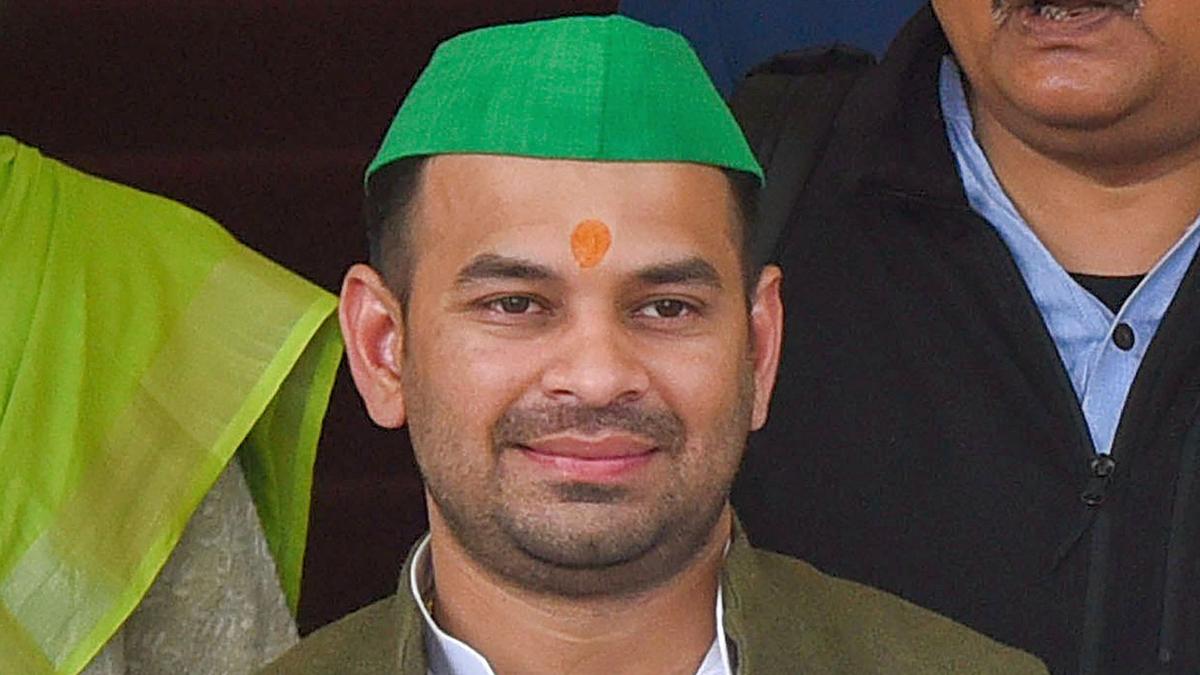 |
|
The recent expulsion of Tej Pratap Yadav from the Rashtriya Janata Dal (RJD) by his father, Lalu Prasad Yadav, has ignited a flurry of accusations and counter-accusations, turning a family matter into a public spectacle. Aishwarya Rai, Tej Pratap’s former wife, has emerged as a key voice in this unfolding drama, vehemently criticizing Lalu Prasad’s actions as a mere charade designed to salvage the party’s image ahead of upcoming Assembly elections. Her statements shed light on the complex dynamics within the Yadav family and raise serious questions about the treatment she allegedly endured during her brief marriage to Tej Pratap. The crux of Aishwarya Rai’s argument is that the Yadav family was fully aware of Tej Pratap’s long-term relationship with another woman, Anushka Yadav, yet proceeded with her marriage in 2018, only to later abandon her and her dignity. This, she argues, constitutes a grave injustice and exposes the hypocrisy of Lalu Prasad’s claims of upholding social justice. Her emotional press conference, accompanied by her father, Chandrika Rai, a former minister, painted a picture of a woman wronged, used as a pawn in a larger political game. She questioned the timing of Tej Pratap’s expulsion, suggesting it was a calculated move to protect Tejashwi Yadav, Lalu’s younger son, who is being projected as the next Chief Minister of Bihar. Aishwarya's assertion that the family is putting on a show, with Rabri Devi, Tej Pratap’s mother, likely consoling him behind the scenes, further fuels this narrative. The alleged beating that she says she suffered while married, alongside the now public knowledge of Tej Pratap’s affair, makes the whole situation look even worse. The fact that Tej Pratap claimed his social media was hacked when his relationship was announced raises further suspicion, and creates doubt about the sincerity of the entire event. She claims that they are using her personal life as a political football, completely uncaring of her well-being and the pain she must be experiencing.
Aishwarya Rai's allegations are not just personal grievances; they directly challenge the RJD’s core values and its image as a champion of social justice. Lalu Prasad, a veteran politician known for his populist rhetoric and commitment to the marginalized, now faces accusations of prioritizing political expediency over ethical conduct. His decision to expel Tej Pratap, while seemingly aimed at damage control, has inadvertently opened a Pandora’s Box of family secrets and internal conflicts. The timing of the expulsion, just months before the Assembly elections, suggests a desperate attempt to prevent Tej Pratap’s controversial behavior from tarnishing Tejashwi Yadav’s image. However, this move has backfired, attracting more scrutiny to the Yadav family’s internal affairs and raising questions about their commitment to transparency and accountability. The accusations from Aishwarya, in particular, resonate with the public because they challenge the patriarchal norms that often prevail in Indian politics. Her plea for justice and her questioning of the family’s motives strike a chord with those who believe that women are often unfairly blamed and silenced in such situations. Her statement, “Why did they ruin my life? Why did the family member beat me? Now their social justice has suddenly awakened,” encapsulates her pain and frustration, highlighting the stark contrast between the RJD’s professed ideals and its alleged treatment of her. It directly attacks the very foundation of the RJD's public image by claiming that Lalu's family only thinks about their image after years of mistreating his own daughter-in-law.
The response from the Bihar BJP, led by Nikhil Anand, further complicates the situation. Anand dismissed Lalu Prasad’s actions as an “eyewash,” arguing that the expulsion was a pre-arranged agreement within the family designed to deflect criticism. He questioned why Lalu Prasad did not take more decisive action, such as writing to the Bihar Assembly Speaker to end Tej Pratap’s membership. This skepticism reflects a broader distrust of the RJD’s motives and suggests that the public may not be entirely convinced by Lalu Prasad’s attempts to distance himself from Tej Pratap’s behavior. Anand’s remarks also highlight the unresolved questions surrounding Aishwarya Rai’s dignity and self-respect, emphasizing that the political maneuvering should not overshadow the personal suffering she has allegedly endured. The BJP's intervention adds another layer of complexity to the narrative, transforming a family dispute into a partisan battleground. It also shows how easily personal scandals can be politicized, and that the actions of public figures will always be scrutinized by their political opponents. The fact that the BJP immediately commented on the family drama further indicates the intense competition in Bihar politics and the eagerness of all parties to capitalize on any perceived weakness or vulnerability.
In conclusion, the expulsion of Tej Pratap Yadav and the subsequent accusations from Aishwarya Rai have exposed a web of personal and political conflicts within the Yadav family. Lalu Prasad’s attempt to control the narrative has been largely unsuccessful, as the public remains skeptical of his motives and concerned about the alleged mistreatment of Aishwarya Rai. The upcoming Assembly elections will undoubtedly be influenced by this unfolding drama, as the RJD grapples with the challenge of maintaining its credibility in the face of these serious allegations. The long-term consequences of this scandal remain to be seen, but it is clear that the Yadav family’s image has been significantly tarnished. The scandal serves as a reminder of the complexities and contradictions inherent in Indian politics, where personal lives and political ambitions often become inextricably intertwined. It also shows the challenges that women can face in a patriarchal society, especially when caught between the powerful political interests of their husbands and their families. The whole situation points to the deep, systemic issues of social justice, power, and accountability within Bihar politics, and it highlights the need for a serious national conversation on these topics. Ultimately, the fallout from this scandal will have a significant impact on the future of the RJD and the political landscape of Bihar.
Source: Aishwarya Rai, ex-wife of Tej Pratap, terms Lalu’s action against his son a ‘drama’
